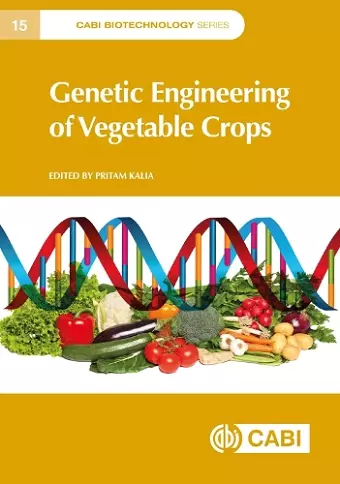Genetic Engineering of Vegetable Crops
Format:Hardback
Publisher:CABI Publishing
Published:16th Jan '25
£170.00
Supplier delay - available to order, but may take longer than usual.

Researchers in horticulture, plant science, agricultural biotechnology, molecular biology. Practitioners e.g. seed companies.
Genetic engineering is a wonderful technology for developing improved cultivars which are resistant to biotic and abiotic stresses, have enhanced nutritional value, and improved shelf life. This book discusses the progress made in genetic improvement of a number of different vegetable crops.Conventional plant breeding alone can no longer sustain the rising global demand for food. Genetic engineering technology makes it possible to develop new crop varieties with improved yield performance, specific quality attributes (external and internal in vegetable crops), resistance to diseases and insect pests, and environmental stresses. Genetic engineering technology for developing GM crops is complementary to genome editing and other breeding technologies. In addition to food requirements, transgenic crops have the possibility to carry edible vaccines and therapeutic proteins, to help combat human disease and malnutrition. This book reviews the importance and safety of transgenic vegetable crops and covers a wide variety of crops and different technologies. It includes: Genetic engineering in tomato, eggplant, peppers, amaranth, cauliflower, carrot, cucurbits, potato, tropical tubers and melons. Transgenic resistance to viral diseases. Embryogenic cell suspension culture. Genome editing and CRISPR/Cas9. Molecular techniques for biofortification. RNAi strategies for vegetable crop improvement. Designing futuristic vegetable crop varieties. This book is suitable for researchers in horticulture, plant science, and agricultural biotechnology as well as practitioners in vegetable breeding and seed production.
ISBN: 9781800627109
Dimensions: unknown
Weight: unknown
448 pages